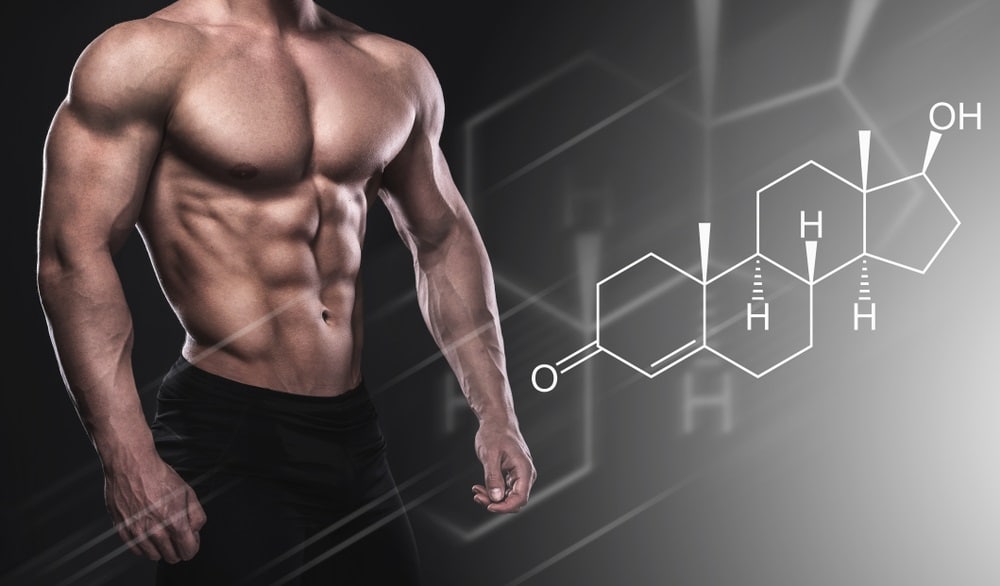Healthy testosterone levels are a critical component of optimal male health. Testosterone is a hormone that plays an important role in maintaining various aspects of health, from increasing muscle mass to improving mood and energy levels. Testosterone is produced primarily in the testicles and naturally peaks during adolescence and adulthood, gradually declining with age.
Why is testosterone important?
Testosterone is integral to a wide range of bodily functions. This hormone contributes to muscle mass, strength and body fat distribution. It also supports healthy bone density, which is vital for overall physical health and the prevention of conditions such as osteoporosis.
Testosterone also affects mental and emotional health. Adequate testosterone levels are associated with positive mood, increased motivation and a sense of well-being. Conversely, low testosterone levels can lead to depression, irritability, and cognitive decline.
Libido and sexual activity are also directly related to testosterone, with low levels often resulting in decreased sexual desire and erectile dysfunction. Thus, maintaining balanced testosterone levels is essential for both physical and mental health.
Symptoms of low testosterone levels in the body
In recent years, there has been a noticeable decline in testosterone levels among men around the world. Modern men have significantly lower levels of this hormone compared to previous generations. This decline has raised concerns among health professionals and researchers.
Low testosterone can affect many aspects of a man’s life. Symptoms often include fatigue, decreased libido, erectile dysfunction, loss of muscle mass, and mood changes such as depression or irritability.
Factors that affect testosterone levels
- Sleep: Insufficient or poor quality sleep reduces testosterone production.
- Chronic sleep deprivation can cause testosterone levels to drop significantly.
- Diet: High intake of processed foods (bread, sweets, dairy products, take-out) is associated with reduced testicular function and lower testosterone levels. A healthy diet with home-cooked meals, dark green vegetables, fish, chicken and fruit is associated with better testicular function and normal testosterone levels.
- Exercise: Regular exercise and sports in general can help increase testosterone levels in the body.
- Stress: Managing stress is important for maintaining balanced testosterone levels, as chronic stress can reduce the production of this hormone.
Intake of vitamins, minerals and essential fatty acids
Various nutrients, including vitamins and minerals, can affect testosterone levels.
Vitamin D
Vitamin D is essential for hormonal function, and research shows that adequate levels of vitamin D are associated with higher levels of testosterone. A deficiency of this vitamin can contribute to lower testosterone production. A natural source of vitamin D is sunlight, but supplements containing this vitamin are often recommended for people with limited sun exposure.
Boron
Boron is a trace element that is involved in mineral metabolism and affects hormonal balance by increasing testosterone levels and decreasing estrogen levels in men. Research shows that taking boron supplements can improve the levels of free testosterone in the body.
Codliver oil
Fish oil, rich in omega-3 fatty acids such as EPA and DHA, can also increase testosterone levels. Omega-3 fatty acids regulate hormones and improve testicular function. Fish oil supplements also support cardiovascular function, mental health, and reduce inflammation.
Magnesium
Magnesium plays a vital role in many bodily functions, including muscle and nerve function, blood sugar control, and bone health. It contributes to energy production and positively affects testosterone levels. Research shows that magnesium intake can increase testosterone levels in both athletes and sedentary men. However, excessive magnesium intake can cause digestive discomfort, so it is advisable to start with a low dose.
Zinc
Zinc is an important trace element that supports the immune system, DNA synthesis and cell division. It plays a key role in reproductive health by contributing to the production and regulation of testosterone. Adequate levels of zinc can help increase testosterone levels, especially in zinc-deficient men.
Herbs and herbal extracts to support normal testosterone levels
Ashwagandha
Ashwagandha (Withania somnifera) is a popular adaptogenic herb in Ayurvedic medicine that helps the body cope with stress, improves energy levels, sports performance and endurance. Recent studies show that daily use of ashwagandha increases testosterone in men.
Fenugreek
Fenugreek (Trigonella foenum-graecum) is a medicinal herb used to regulate blood sugar and cholesterol, as well as to support hormonal health. A meta-analysis of four clinical trials shows that fenugreek improves testosterone levels in men.
Tongkat Ali
Tongkat Ali (Eurycoma longifolia), also called “Malaysian ginseng”, is a well-known herb that is considered an aphrodisiac and has an adaptogenic effect. A systematic review and meta-analysis showed that the use of Tongkat Ali extract improved testosterone levels in both healthy men and men with low testosterone.
Betaine
Betaine (trimethylglycine) is a compound found in beets that improves cardiovascular function and liver health. The extract promotes healthy testosterone levels in athletes. Studies have found that betaine supplements improve athletic performance and increase testosterone concentrations.
Tribulus
Tribulus (Tribulus terrestris) is an herb that is used as a means of increasing libido and maintaining hormonal health. Research on its effectiveness as a testosterone booster is mixed, but some studies suggest it may improve symptoms of low testosterone such as low libido and erectile dysfunction.
Sources:
- Abbott K, Burrows TL, Acharya S, Thota RN, Garg ML. Dietary supplementation with docosahexaenoic acid rich fish oil increases circulating levels of testosterone in overweight and obese men . Prostaglandins Leukot Essent Fatty Acids. 2020 Dec;163:102204.
- Cinar V, Polat Y, Baltaci AK, Mogulkoc R. Effects of magnesium supplementation on testosterone levels of athletes and sedentary subjects at rest and after exhaustion . Biol Trace Elem Res. 2011 Apr;140(1):18-23.
- Hu TY, Chen YC, Lin P, Shih CK, Bai CH, Yuan KC, Lee SY, Chang JS. Testosterone-Associated Dietary Pattern Predicts Low Testosterone Levels and Hypogonadism . Nutrients. 2018 Nov 16;10(11):1786.
- Kamenov Z, Fileva S, Kalinov K, Jannini EA. Evaluation of the efficacy and safety of Tribulus terrestris in male sexual dysfunction-A prospective, randomized, double-blind, placebo-controlled clinical trial . Maturitas. 2017 May;99:20-26.
- Leisegang K, Finelli R, Sikka SC, Panner Selvam MK. Eurycoma longifolia (Jack) Improves Serum Total Testosterone in Men: A Systematic Review and Meta-Analysis of Clinical Trials . Medicine (Kaunas). 2022 Aug 4;58(8):1047.
- Leproult R, Van Cauter E. Effect of 1 week of sleep restriction on testosterone levels in young healthy men . JAMA. 2011 Jun 1;305(21):2173-4.
- Lopresti AL, Drummond PD, Smith SJ. A Randomized, Double-Blind, Placebo-Controlled, Crossover Study Examining the Hormonal and Vitality Effects of Ashwagandha (Withania somnifera) in Aging, Overweight Males . Am J Mens Health. 2019 Mar-Apr;13(2):1557988319835985.
- Mansoori A, Hosseini S, Zilaee M, Hormoznejad R, Fathi M. Effect of fenugreek extract supplement on testosterone levels in men: A meta-analysis of clinical trials . Phytother Res. 2020 Jul;34(7):1550-1555.
- Naghii MR, Mofid M, Asgari AR, Hedayati M, Daneshpour MS. Comparative effects of daily and weekly boron supplementation on plasma steroid hormones and proinflammatory cytokines . J Trace Elem Med Biol. 2011 Jan;25(1):54-8.
- Pilz S, Frisch S, Koertke H, Kuhn J, Dreier J, Obermayer-Pietsch B, Wehr E, Zittermann A. Effect of vitamin D supplementation on testosterone levels in men . Horm Metab Res. 2011 Mar;43(3):223-5.


